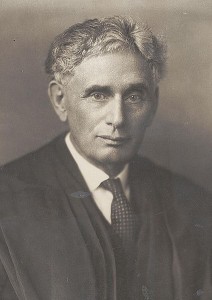Although he has been under house arrest since shortly after his return to Pakistan while facing trial on charges of arranging the assassination of Benazir Bhutto, former Pakistani Army Chief and President Pervez Musharraf was given a lifetime ban from holding political office by the Peshawar High Court:
The Peshawar High Court (PHC) on Monday banned former military ruler Pervez Musharraf from politics for life.
The ruling came in response to an appeal filed by the former army strongman over the rejection of his nomination papers for the National Assembly seat in Chitral.
A four-member larger bench, headed by PHC Chief Justice Dost Mohammad Khan and comprising of Justice Malik Manzoor, Justice Syed Afsar Shah and Justice Ikramullah ruled that since Musharraf had abrogated the Constitution twice, he could not be allowed to contest elections for either the National Assembly or the Senate.
Isn’t that interesting? In Pakistan, violating the country’s constitution as President gets a lifetime ban from politics, while in the US the same offense allows the perpetrator to open a Presidential Lie Bury.
Meanwhile, as the May 11 elections draw nearer, violence is escalating. Today’s New York Times reports on a suicide bomber who killed nine in Peshawar in an attack that seemed aimed at creating an overall climate of fear rather than attacking a particular target:
An attacker riding a motorcycle detonated his explosives near the suspected target, a police patrol car, on busy University Road during the morning rush hour, killing a police constable and several bystanders, said Faisal Kamran, a senior police official.
/snip/
There was no immediate claim of responsibility, although the Taliban have carried out a relentless series of attacks against secular political parties around the country in recent weeks as part of a drive to influence the elections.
Officials in Peshawar said the attack on Monday was different in that it did not appear to target a specific party but aimed instead to foster a broader climate of fear during the campaign season.
Sadly, two of the people who died were Afghan trade officials who most likely were not targeted but merely were victims of the senseless attack.
As stated above, most violence ahead of the election has been aimed at political parties and candidates. It has become so widespread that Human Rights Watch issued a statement yesterday, calling for more protection of candidates and political parties:
Pakistan’s interim government should take all necessary steps to ensure the safety of candidates and political party activists at risk of attack from the Taliban and other militant groups, Human Rights Watch said today. Nationwide parliamentary elections in Pakistan are scheduled for May 11, 2013.
Since April 21, when election campaigning formally began, the Taliban and other armed groups have carried out more than 20 attacks on political parties, killing 46 people and wounding over 190. Earlier in April, another 24 people were killed and over 100 injured in election-related attacks.
That violence is continuing:
An independent election candidate and two of his relatives from Balochistan’s Jhal Magsi area were killed by unknown assailants on Tuesday night prompting the Election Commission of Pakistan (ECP) to postpone the elections in PB-32.
According to the police and relatives of the deceased, Abdul Fateh Magsi was kidnapped on Tuesday (sic) night and his bullet-riddled body was found on Tuesday morning.
Presumably, Magsi was kidnapped on Monday evening and his body found this morning.
There is a long article in today’s Washington Post handicapping the elections. I’m pretty sure that this passage is delivered without a clue to the level of hypocrisy it drips:
On May 11, Pakistanis will choose the next prime minister in an election hailed as a landmark of democratic progress for a country ruled by the military for nearly half its 65-year history. Yet decades of tradition dictate why democracy has remained more of a concept than a reality.
Even as Pakistan prepares to witness its first democratic transition of power, elite political families, powerful landholders and pervasive patronage and corruption undermine the prospects of a truly representational democracy, political analysts say.
Coming on the heels of Sandra Day O’Connor finally admitting the US Supreme Court should not have decided the 2000 Presidential Election and as the Post and other pundits continue to hype the Hillary Clinton vs. JEB! Bush 2016 contest, what more proof do we need that the US is completely free of corruption and elite political families?

